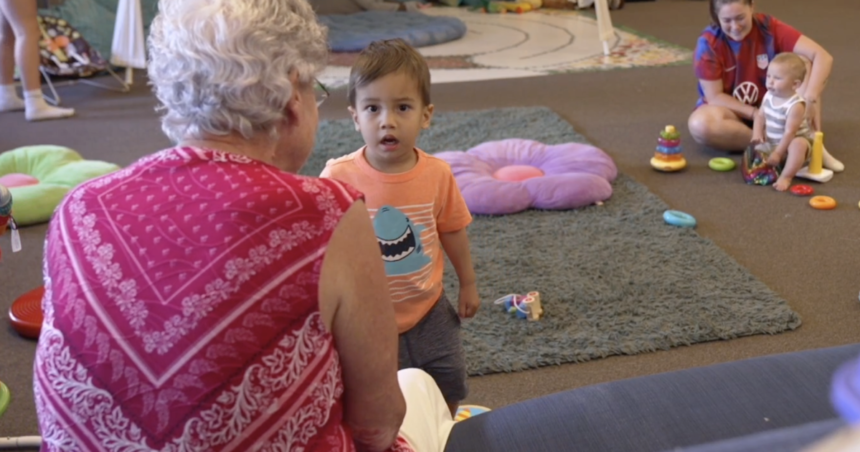It’s a widespread issue — the lack of affordable daycare. Even when it is found, there could be years-long waitlists. This results in many people leaving the workforce to stay home with their children, putting a significant strain on the labor force.
With two young children and a mother requiring constant care, Melania Piazza struggled to find balance. Unable to access childcare, she and a group of mothers brainstormed a solution that has been described as a lifesaver.
On this day, though, it’s not about the physical space — it’s more about the shared purpose that brings them together.
“I think it’s easy to focus on this business as childcare because the need for childcare is universal. However, we also realized the importance of caring for parents and creating a space to work,” Piazza explained. The Family Village cooperative, which Melania Piazza helped establish, was born out of desperation, she revealed.
“I was raising my toddler and newborn while also caring for my terminally ill mother,” Piazza recounted.
After some trial and error, it has evolved into a space that offers more than just basic childcare.
“It’s about being able to get work done without needing a full-time job or paying for full-time care, while also fulfilling the social needs that many parents have because we don’t live in a village-like society,” she said.
Heather Brejot, an accountant, describes the co-op as a lifesaver, allowing her to work peacefully for three hours daily.
“Without this place, I would still be working part-time, struggling to balance caring for a toddler with work responsibilities,” Brejot said.
Brejot’s nearly two-year-old daughter, Marin, had been on a daycare waitlist even before she was born.
They are not alone. In September 2023, federal funds from the American Rescue Plan Act expired. A study by the Century Foundation anticipated a significant decrease in childcare programs per state, potentially leading to over three million children losing their spots. The study also predicts that many Americans will have to leave the workforce or reduce their hours.
“We’ve realized that our cooperative’s values align with our vision for this space, which is not just about supporting parents and children, but also about creating shared prosperity,” Piazza remarked.
Parents pay $25 to join the co-op and purchase monthly passes ranging from approximately $150 to nearly $700. The co-op keeps fees low by renting spaces in churches, where parents work in the same building as their children, allowing them to operate without a license.
“Having parents on-site enables them to check on their children as needed, taking legal responsibility for their kids while at the co-op. This arrangement also helps keep prices down, as we don’t have to adhere to licensed care regulations. We offer a safe, healthy environment and provide an opportunity for different age groups to interact, a rarity in licensed care settings,” Piazza stated.
Piazza acknowledges that laws vary by state, allowing the Family Village to involve elderly volunteers.
“Addressing the loneliness experienced by the elderly is important. We currently have volunteers, mostly elders, who find fulfillment in caring for the children, just as the children benefit from their presence,” Piazza said.
For parents like Brejot, investing in this community has proven fruitful: “I’ve been able to take on more responsibilities and work longer hours, knowing that my daughter is well-cared for downstairs.”
Plans are underway to establish two additional Family Village cooperatives in Colorado. Piazza encourages parents nationwide to reach out, hoping to inspire similar solutions in other communities across the country.
“We understand that childcare is essential for economic growth. The two are interconnected, and the childcare crisis is a widespread issue,” Piazza emphasized.




